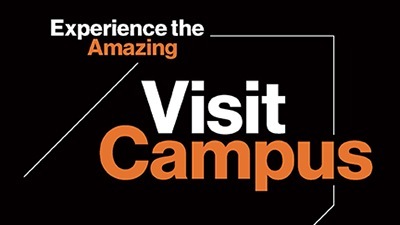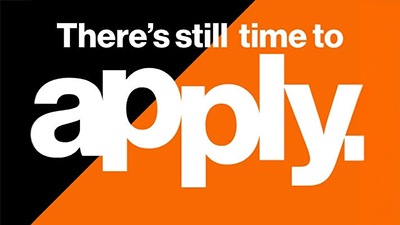
Robyn Dean
Associate Professor, ASL and Interpreting Education
Department of ASL and Interpreting Education
National Technical Institute for the Deaf
Office Location
Robyn Dean
Associate Professor, ASL and Interpreting Education
Department of ASL and Interpreting Education
National Technical Institute for the Deaf
Education
BA, Maryville College; MA, Colgate Rochester Crozer Divinity School; Ph.D., Heriot-Watt University (United Kingdom)
Select Scholarship
Invited Keynote/Presentation
Dean, Robyn, et al. "Translation Standards Advisory Committee Panel Discussion." Launch of Cirrus Translate. Cirrus, Inc. TerpAcademy Summit 2025. Online, Online. 12 Jul. 2015. Address.
Journal Paper
Dean, Robyn, et al. "Video Relay Service Interpreters’ Experiences with Caller Behavior: An Occupational Health Risk Call to Action." Healthcare 13. 2116 (2025): 1 - 25. Web.
Dean, Robyn K and Robert Q Pollard. "Improving interpreters’ normative ethics discourse by imparting principled- reasoning through case analysis." INTERPRETING AND SOCIETY AN INTERDISCIPLINARY JOURNAL. (2022): 1-18. Print.
Dean, Robyn K., Vince Samar, and Daniel Maffia. "Are Two Heads Better Than One? Interpreting Students’ Moral Reasoning Skills." International Journal of Interpreter Education 14. 1 (2022): 17-31. Web.
Dean, Robyn. "Reflection-in-action: Measuring ‘context’ in medical interpreting." Linguistica Antverpiensia, New Series: Themes in Translation Studies. 20 (2021): 248–266. Print.
Full Length Book
Dean, Robyn and Robert Pollard. The demand control schema: Interpreting as a practice profession. 1 ed. Tokyo, Japan: The English Agency (Japan) Ltd., 2022. Print.
Invited Paper
DEAN, ROBYN. "Healthcare Interpreting Ethics: A critical review." outledge Handbook of Translation and Health. London & New York: Routledge. (2021). Print.
Grants
Dean, Robyn K., Robert Q Pollard, and Vincent Samar (2018-2018). Out of the Hot Seat, into the Hot Seat: The Cognitive Effects of a No Rest Approach to Team Interpreting. Grant received/funded by Scholarship Portfolio Development Initiative, RIT.
Currently Teaching
HCIA-719
Theories of Translation and Interpretation
3 Credits
This course will begin with an examination of the scope of practice of spoken language interpreters in health care settings and this will then be compared to the models of professional deportment in sign language interpreting. From there, we will review the major paradigms in the field of translation and interpretation, that of formal or functional (dynamic) equivalence, and how the scope of practice expectations impact the interpretation process. Finally, students will explore the concept of “sense” or meaning and how to convey that in a medical setting.
INTP-315
Practical and Ethical Applications
3 Credits
This course presents the underlying principles of the Registry of Interpreters for the Deaf Code of Professional Conduct and other ethical content material, including the four core principles of service professions and how these principles apply to practice settings. This course exposes students to actual interpreting jobs and practitioners, providing students an opportunity to explore how professional interpreters weigh and balance these principles in their daily work and how Deaf and hearing consumers perceive interpreters’ decision-making skills. The course also addresses the distinction between normative and descriptive ethics and their impact on interpreters’ decision-making. Students will have the opportunity to explore reflective practice techniques as a means to develop ethical judgment skills, to gain critical insight into the task of self-regulation, and as a technique to engage in self-care. The ethical constructs of demand control schema will be used as the framework for decision making. Etiquette and protocols specific to each setting will be discussed. Settings include: K-12, post-secondary, religious, healthcare, mental health, DeafBlind, performing arts, legal, VRS, VRI, and business and industry.
INTP-350
Practicum and Seminar I
3 Credits
This course combines an introductory practicum experience in the field of ASL-English interpretation with a seminar component to allow senior-level students to engage in reflective practice as they transition into the interpreting profession. Students will undertake field experiences that provide them with firsthand knowledge and familiarity with current topics that impact professional sign language interpreters and the Deaf community. Practicum will also give students the opportunity to gain firsthand experience under the immediate supervision of a professional interpreter, who functions as each student’s mentor. The practicum experience will involve activities such as observing a mentor and other interpreters at work; interpreting under the supervision of a mentor; and weekly meetings with a mentor to discuss the practicum experience and to receive professional feedback. Building upon students’ practicum experiences, students will use the constructs of Demand Control Schema to guide their seminar discussions. Students will meet together weekly with their classmates to share observations and experiences gained from the practicum placement. Seminar topics derived from students' field experience will focus on language issues in interpretation, ethical decision making, application of the Code of Professional Conduct, making interpretation choices, and implementing successful business practices as a professional interpreter. Students must complete a minimum of 100 hours of field experience and related activities.
INTP-441
Healthcare Interpreting
3 Credits
This course is designed to introduce students to sign language interpreting in healthcare settings through the analytical construct of Demand-Control Schema for interpreting work. The course content includes medical terminology in English and ASL. Students will learn tools and techniques to utilize while interpreting in healthcare environments with an emphasis on interactive learning including direct exposure to healthcare settings, deaf and hard-of-hearing healthcare professionals and professional healthcare interpreters.




